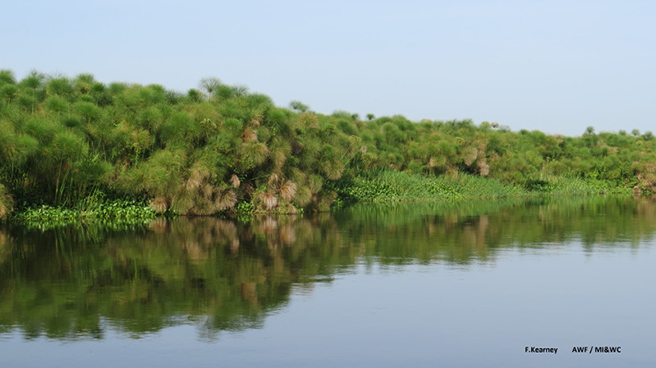Advising South Sudan

A new country faces any number of challenges, and for the Republic of South Sudan, that includes determining how best to manage its abundance of natural resources.
At the request of the government, AWF is assisting South Sudan in establishing appropriate policies that will help protect its natural resources. Former Maasai Steppe Director, James Kahurananga has been working in Juba as the AWF technical advisor for the Ministry of Wildlife Conservation and Tourism.
We asked Kahurananga about the country’s conservation potential.
Q: In your view, what are the biggest priorities for the Ministry?
South Sudan has a unique set of conservation priorities and challenges. The main challenges are institutional development and training. Sudan’s Ministry of Wildlife Conservation and Tourism has absorbed 18,000 former combatants who have no formal training in wildlife. So one of the major priorities is to get them trained. Another is the development of policies and laws to regulate wildlife management and protection. The country is very young and policies and laws are crucial at this early stage.
Q: What is the strongest threat to conservation in South Sudan?
Maintenance of security. There are millions of small arms and a number of groups still opposing the government. A recent example was a conflict in Boma National Park, where infrastructure, including a training center, equipment, and other items were destroyed. Most of the ranger force was decimated.
Q: What are the greatest overall challenges that the South Sudanese government faces? Where does conservation fit into broader governmental concerns?
There is a lack of finance. South Sudan depended on oil for 98% of its budget. After its closure of the oil pipeline due to a government disagreement with the Sudan government in Khartoum, there was a severe shortage of funds, leading to an austere budget that cut off a number of activities. The Ministry of Wildlife Conservation and Tourism is a low priority, and a training program was completely stopped. Fortunately, oil has begun to flow again, but the austerity measures remain. Food insecurity caused by conflict—and, in some areas, drought—has led to millions of refugees and displaced persons. About two million people in South Sudan will be eligible for food aid this year.
Q: What do you think it will take to establish a more conservation-oriented mindset among the citizenry?
The main way of raising public concern for wildlife is by communities deriving benefits from conservation through wildlife-related enterprises. The impact of wildlife management areas in Maasai Steppe in raising community support for wildlife conservation is a good example.
